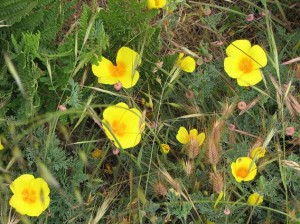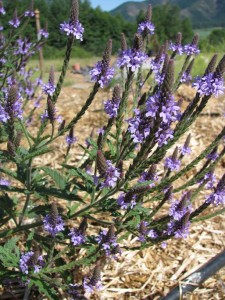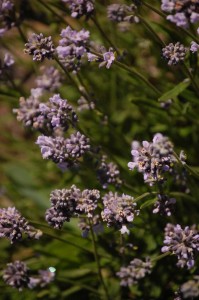Now that I have covered some of the basics of sleep and good sleep habits, let’s get into some of the more difficult situations and the herbs that are available.
The definition of insomnia, according to the Merck Manuel, is “difficulty in sleeping or disturbed sleep patterns; leaving the perception of insufficient sleep.” There are 78 recognized sleep disorders. Insomnia is twice as common in women as men
Many people take some sort of sleeping aid regularly or occasionally whether it is a prescription, supplement, homeopathy or herb. While there are varying degrees of physical addictiveness with these different substances, they all have the potential to be emotionally addictive.
Many times I have heard people say they sleep fine when they take X and when I ask them how they sleep without it, they don’t know because they are afraid to try sleeping without it; even years later.
There is a place and time, often with a chronic illness, when a person loses trust in his or her body to find and maintain balance without intervention. This is why it is important to look at the root cause of why you aren’t sleeping well and not just knock yourself out artificially every night.
The general classification of prescription sleeping pills is hypnotics or sedatives; to varying degrees all drugs in this class are addictive. You build a tolerance (meaning you have to take more to have the same effect) and withdrawal from them can cause a temporary recurrence of sleeplessness. This class of drugs also has an additive affect with other central nervous system (brain and spinal cord) depressants.
In other words combined with alcohol, anti-histamines, anti-anxiety, anti-depressant, or opiates; their actions are even stronger. In the elderly, these medications can cause restlessness, excitement and exacerbate symptoms of organic brain disorders. Always consult a doctor before starting or stopping a prescription medication.
Some folks have the opposite problem, they sleep ‘too much’. This is more commonly seen with depression or fatigue (from adrenal burnout typically and/or menopause). Or, they are getting a sufficient number of hours of sleep but don’t feel rested.
A quick note on sleep apnea. While there are different types of sleep apnea, the basic concept is that during sleep, breathing recurrently stops long enough to cause measureable blood deoxygenation. So, the body isn’t getting enough oxygen. This can cause many problems including inflammation, nightmares and day time anxiety.
So, in order to combat insomnia, we need to address the root problem; physical, emotional, spiritual.
Sometimes insomnia is based in the emotions and so you want to consider if it is something old or something new (borrowed or blue…just kidding). Getting as far as a conscious understanding of what is going on can go a long way. If you need additional support to work through what is keeping you up, seek it out. Your sleep is important and you are worth it.
Now, I know that some of you work third shift/late night/irregular schedules. This can really throw your body off, especially in the sleep department. You will need to pay extra attention to getting the best quality sleep you can knowing that you are working against your natural rhythms in relation to light and dark. Besides light cycles, our circadian rhythms respond to ambient temperature, meal times, stress and exercise. So, if you can’t or don’t want to change your work schedule, you can work with the second list to get your body in a healthy rhythm.
How do you feel when you can’t sleep?
Part of sorting out the puzzle of insomnia is to observe what is happening. If you are lying awake and/or wake up during the night ask yourself the following:
- Is my body tense? Where?
- What emotions am I experiencing?
- What am I thinking about? Is my mind calm or racing?
- Do I feel safe? Sleep is a vulnerable time.
Do you wake at the same time? If so, one of your organs may be waking you up and some tonics to that organ may help. Below is a highly simplified version of the TCM body clock; just to give you a starting point. According to Traditional Chinese Medicine the following times relate to the following organs:
7-9pm heart governor
9-11pm triple heater (not one organ correspondence, simplified about metabolism)
11-1am gallbladder
1-3am liver
3-5am lungs
5-7am large intestine
7-9am stomach
Herbs
I take a two-fold approach when using herbs to help with sleep. For some, all you need to do is work on the lifestyle suggestions discussed earlier and perhaps take a nervous system tonic during the day. Some folks need a formula specifically taken at bed time. Do not take these herbs in combination with sleeping pills without consulting an herbalist.
Sometimes I use one of these and sometimes they are nice in combination. As I’m sure you realize there are many reasons for sleep disturbances, so there is no one perfect sleep formula. Many sleep formulas that you see on the market simply put several nervines together in hopes of knocking you out. That isn’t herbalism, that is using herbs like pharmaceuticals.
Out of respect for the plants and yourself, take the time to make a more thoughtful, elegant formula. Really look at what the problem is and address it. Even a lovely herb sleep formula shouldn’t have to be used in the long term; the underlying issues need to be addressed so that, hopefully, one day, you don’t need any sleep aids.
Here are some plants to consider:
Passionflower – cooling; antispasmodic for the nervous system, relaxes tense muscles, insomnia with body tension component; nerve pain, improves nerve circulation; hypotensive (lowers blood pressure); sedating, ; contra-indications: strong Rx, hypotension, bradycardia; not in large doses with sleep apnea
Vervain – cooling; nervous system tonic, mildly sedating, anti-depressant, mind chatter, OCD, anxiety, stimulates and cools liver; headaches due to tension; contraindications: pregnancy, liver disease, low blood pressure, not in large doses with sleep apnea
Chammomile – warming; anti-depressant, anti-inflammatory; anti-spasmodic; calming to nervous system; nervous tension held in stomach; contra-indications: excess stomach acid, hot and stimulating in large doses
Motherwort – neutral temperature; nerve and heart tonic, anxiety, menopause, high blood pressure due to stress, menopausal tension, hyperthyroid, sedating; contra-indications: pregnancy
Lavender – cooling; anti-depressant (strong) anti-spasmodic especially in stomach; hypotensive; nervine; reduces anxiety; calming; sedating; contra-indications: stimulating to some, strong plant and many folks just adverse to its energy (while others love it).
California Poppy – neutral; anti-anxiety, restless leg syndrome; helpful in insomnia where the environment is too stimulating and difficulty staying asleep; somewhat pain relieving; contra-indications: check w/ practitioner with Rx
Oats – as tonic, not necessarily effective as direct sleep formula but as day time support; adrenal and nerve tonic; mild anti-depressant, nutritive, best in small frequent doses; aids in recovery from chronic illness
Skullcap – cold; tonic to nervous system; relaxes body from nervous tension; antispasmodic (also helpful with restless leg syndrome); hypotensive, decreases nerve pain and inflammation; reactivity; not sedating; twitchy nerves; contra-indications: hypotension, migraines (with care)
Valerian root; dry can aggravate depression for some folks and cause more of the hang over feeling some people get with valerian; recommend fresh root only on this one, in general; warming; analgesic (relaxes muscle tension); hypotensive, especially if stress induced; sedating, decreases anxiety, tremors and panic; contra-indications: stimulating to a small number of people but irritating if you are one of them; do not use long term, pregnancy, breast feeding, depression, low blood pressure; strong Rx
Now, after reading about these plants, remember to utilize the strategies in both parts of this article. The goal in holistic medicine is to address the root of the problem. So, even if you are using an herb instead of a pill, it isn’t holistic unless you are looking at the bigger picture; as opposed to substituting an herb for a pill.
So take a deep breath, slow down, relax and …
Sleep well!


